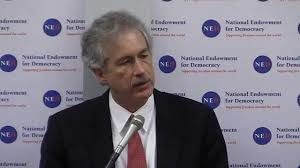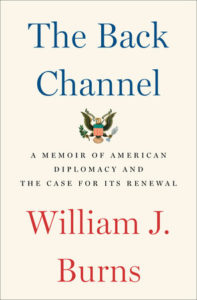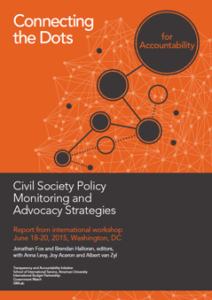 After the collapse of the Soviet Union, it seemed that history was moving inexorably in the direction of democracy and free markets—that we’d reached the “end of history” and could leave behind the dangers of great power conflict, says a prominent observer. The bipolar world seemed transformed by the emergence of a nascent Pax Americana. That moment of euphoria ultimately proved as fleeting as Andrew Carnegie’s hopes in the early days of the last century, with troubling undercurrents again foretelling a tsunami of disruption, writes William J. Burns, President of the Carnegie Endowment for International Peace and the author of The Back Channel: A Memoir of American Diplomacy and the Case for Its Renewal (Random House, 2019):
After the collapse of the Soviet Union, it seemed that history was moving inexorably in the direction of democracy and free markets—that we’d reached the “end of history” and could leave behind the dangers of great power conflict, says a prominent observer. The bipolar world seemed transformed by the emergence of a nascent Pax Americana. That moment of euphoria ultimately proved as fleeting as Andrew Carnegie’s hopes in the early days of the last century, with troubling undercurrents again foretelling a tsunami of disruption, writes William J. Burns, President of the Carnegie Endowment for International Peace and the author of The Back Channel: A Memoir of American Diplomacy and the Case for Its Renewal (Random House, 2019):
 The pace of change is eclipsing responses at every level. The extraordinary peace and prosperity that the world has enjoyed for the last seventy years shows signs of erosion, as the dislocations of globalization become more acute and rising or resurgent powers chip away at the international order. All of these challenges are compounded by a profound erosion of faith between citizens and their leaders. Populism and authoritarianism are on the rise; democracy’s global march has slowed, and even reversed, as the prospect of cooperation framed by international law withers on the vine. Once again, trend lines seem to be heading toward massively destabilizing collisions.
The pace of change is eclipsing responses at every level. The extraordinary peace and prosperity that the world has enjoyed for the last seventy years shows signs of erosion, as the dislocations of globalization become more acute and rising or resurgent powers chip away at the international order. All of these challenges are compounded by a profound erosion of faith between citizens and their leaders. Populism and authoritarianism are on the rise; democracy’s global march has slowed, and even reversed, as the prospect of cooperation framed by international law withers on the vine. Once again, trend lines seem to be heading toward massively destabilizing collisions.
Three broad trends driving contemporary conflict and violence emerge from the essays in a new collection – Think Peace: Essays for an Age of Disorder. adds Burns, a National Endowment for Democracy board member:
- The first is national leaders’ determination to defend the primacy of state sovereignty in defiance of international multilateral organizations.
 The second—somewhat contrary—trend is the increased capacity of nonstate actors in the modern world, such as warlords, drug barons, terrorists, and money-launderers, to cause conflict and instability.
The second—somewhat contrary—trend is the increased capacity of nonstate actors in the modern world, such as warlords, drug barons, terrorists, and money-launderers, to cause conflict and instability.- A third trend is how technology, especially advanced information technology, has reduced human agency, made the world much smaller, and facilitated asymmetrical warfare, in which a few individuals can cause massive disruption.
The book’s authors converge in describing a more hopeful phenomenon, a kind of global civil society that now exists in the form of nongovernmental organizations and civic groups—a much bigger movement than the small citizens’ groups Carnegie funded across the United States and Europe in the 1900s, Burns adds. This is the reverse side of the coin of the malign nonstate actors. This global civil society is a good place to start looking for drivers for peace, rather than agents of conflict. RTWT







